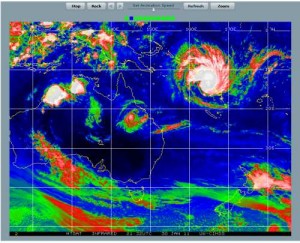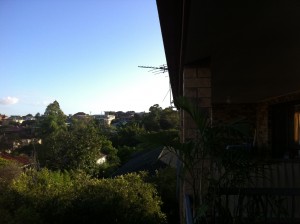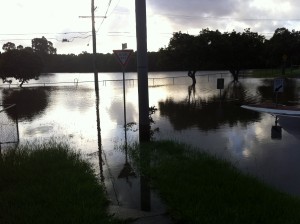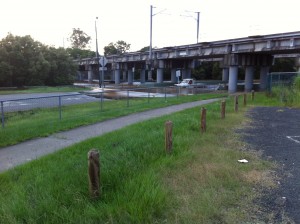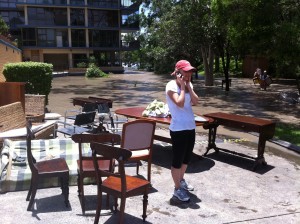‘Put it all on the red!’ That’s the phrase my spouse uses when joking about any situation where all the eggs are in one basket, and chickens double-counted well before they become hatchlings. He used to enjoy blackjack, probably a bit too much, and has strong memories of what can happen when bets aren’t hedged.
Ironic then, that global hedge funds led the charge to the GFC. More concerning is governments’ reluctance to hedge their bets.
Queensland has now had two hundred year floods in 40 years (please correct me if I’ve overstated the situation). Horsham in Victoria is preparing for a one in 200 year flood. Thank heavens there isn’t any climate change, or who knows what we might be in for.
The bill for all this will be absorbed in an inflated GDP. Even the black plague has a silver lining for economists, as Henry Thornton pointed out on this site.
But how much of a good thing can you have, from that distorted economic perspective, before all is exhausted?
Anna Bligh has said the enquiry into the floods will consider urban planning, and will look for ways to ‘price in risk’ to ensure future safety.
When 90% of roads and an area the size of Germany and France combined is under water, perhaps a reconsideration of what risks really mean is needed.
You won’t find such philosophical digressions in the federal government’s discussion paper on a national urban policy:
http://www.infrastructure.gov.au/infrastructure/mcu/urbanpolicy/index.aspx
I’m working my way through this doc so I can draft a submission for a community group. While the document makes many mentions of meeting the challenges of climate change and sustainability, the impression is that these are not to be taken so seriously as to interfere with the main aim, which is supporting growth.
To me this is like a diet plan that says you can eat lots of cake.
But then, who of us in our personal lives can successfully steer away from growth? Money in the bank doesn’t keep up with inflation: no growth means a mediocre investment at best.
What if the decent proposals outlined in the discussion paper are far short of the mark? What if what we need is a transition to a post-carbon economy, with real definitions and metrics for achieving sustainability, and a serious look at population, and how we might limit growth, rather than accommodate it? A UK expert offered alternatives to growth on the ABC recently. They roughly agree with the directions I’m haltingly moving towards.
There is much sensible consideration of serious issues relevant to urban policy in the document, and the phrase ‘food security’ even appears once, but ‘peak oil’ not at all. The paper says the best estimates are for a temperature rise of about 3.5 C by 2070, if no abatement efforts succeed.
It is very hard, for governments and individuals to put metrics around words like ‘resilience’ and ‘sustainability’. How many of those who were flooded will also decide it’s too hard, and move away. What impact will that have on property prices and GDP? Maybe it’s time for a nap…

